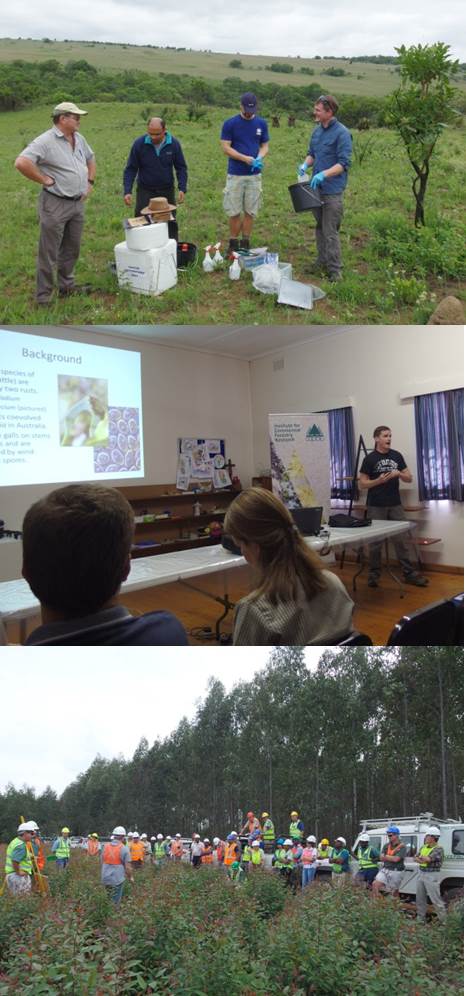FABIans present talks at ICFR Field Day 2014-11-28
Field research and regular interaction with industry stakeholders are two key activities of the Tree Protection Co-operative Programme (TPCP). During the week of 17-21 November a group of four TPCP researchers undertook a research and extension field visit to the Mpumalanga and KwaZulu-Natal Provinces. The aims were to participate in a ICFR (Institute for Commercial Forestry Research) field day at Wartburg, collect material for research projects and to advise on disease problems for industry.
Field research included the collection of soil samples from Acacia mearnsii, Eucalyptus species and associated native environments. This material will be baited for Phytophthora species and used for next generation sequencing to identify species of this pathogen present in South African plantation forestry areas. This project is led by Tanay Bose, a PhD student at FABI, working with Profs Mike Wingfield and Jolanda Roux, as well as Prof Treena Burgess (Murdoch University, Australia).
During the field trip surveys were conducted to evaluate the presence and severity of the new wattle rust pathogen of A. mearnsii. This disease is of great concern to farmers in the KZN Midlands, but has not yet been confirmed from the Mpumalanga Province. Symptoms of the disease were found in the Commondale, Luneburg and Kambula regions, but these were not as severe as those seen in the KZN Midlands.
The final day of the field trip was spent with foresters and farmers at one of the ICFR’s regular field days. During the field day Dr Alistair McTaggart, TPCP post-doctoral research fellow from Brisbane, Australia, spoke about his progress in identifying the cause of the wattle rust. He also explained the typical life cycle of rust fungi and elucidated on the possible impact of environmental conditions on the disease. Prof Jolanda Roux provided updates on the biological control efforts to manage Leptocybe invasa and provided information regarding other introduced insect pests of Eucalypts in South Africa and informed those present of the appearance of pitch canker, caused by the fungus Fusarium circinatum, in the Karkloof and Soutpansberg (Limpopo) areas.


